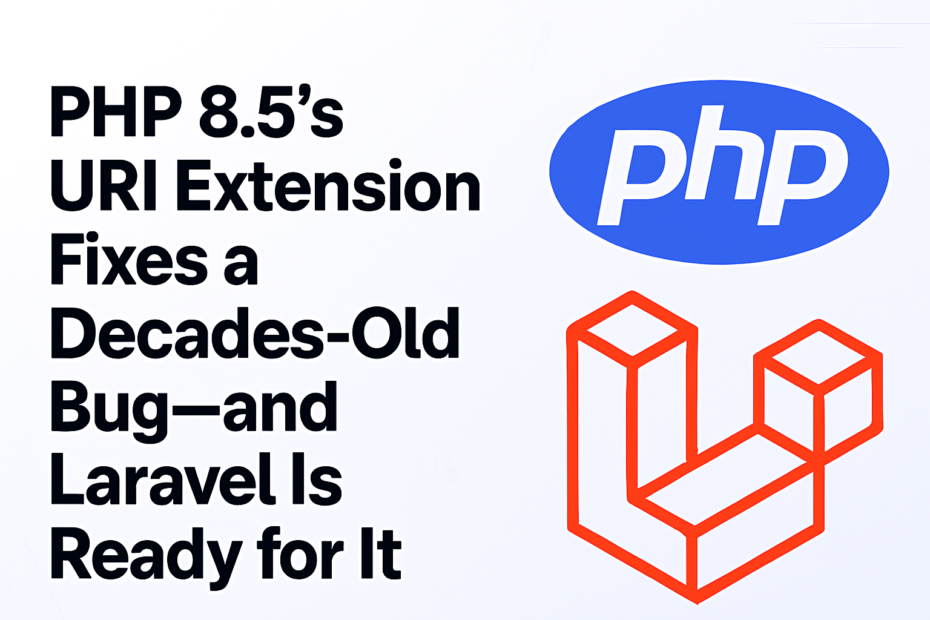PHP 8.5 introduces a powerful new URI extension that replaces parse_url() with standards-compliant classes. Laravel developers now get safer, cleaner, and more predictable URL handling — with full compatibility baked in.
🌐 The Problem with parse_url()
For years, PHP devs relied on parse_url() — a function that’s… functional, but flawed.
- Not RFC-compliant
- Inconsistent behavior across edge cases
- No support for WHATWG-style URLs (used in browsers)
- Hard to normalize or modify URLs safely
This led to subtle bugs, security issues, and messy workarounds — especially in Laravel apps dealing with external APIs, redirects, or dynamic routing.
✅ PHP 8.5 Fixes It with the New URI Extension
PHP 8.5 ships with a standards-compliant URI extension that includes two powerful classes:
🔹 Uri\Rfc3986\Uri
- Strict validation
- Immutable object
- Optional normalization
- Percent-decoding where safe
🔹 Uri\WhatWg\Url
- Browser-style parsing
- Unicode/IDNA host support
- Soft/hard error handling
- Parse-time transformations
These classes offer fluent interfaces, immutable design, and consistent behavior — a massive upgrade over legacy parsing.
use Uri\Rfc3986\Uri;
$url = new Uri('HTTPS://thephp.foundation:443/sp%6Fnsor/');
$defaultPort = match ($url->getScheme()) {
'http' => 80,
'https' => 443,
default => null,
};
if ($url->getPort() === $defaultPort) {
$url = $url->withPort(null);
}Bonus: You can now resolve relative URLs, normalize paths, and compare URIs with precision.
🧩 Laravel Compatibility: Seamless Integration
Laravel doesn’t need any changes to support the new URI extension — but it benefits immediately:
- Safer redirect logic in controllers and middleware
- Cleaner URL parsing in jobs, services, and API clients
- Better interoperability with tools like Guzzle, Inertia, and external services
You can even wrap the new URI classes into Laravel service providers or facades for consistent usage across your app.
// Example: Normalizing incoming URLs in a Laravel middleware
use Uri\Rfc3986\Uri;
public function handle($request, Closure $next)
{
$uri = new Uri($request->fullUrl());
$normalized = $uri->withPort(null)->withScheme('https');
// Use normalized URL for logging or redirects
Log::info('Normalized URL: ' . $normalized->__toString());
return $next($request);
}🧠 Final Thought
PHP 8.5’s URI extension is more than a cleanup — it’s a foundational upgrade for modern web apps. And Laravel, with its expressive syntax and middleware-first architecture, is perfectly positioned to take advantage of it.
